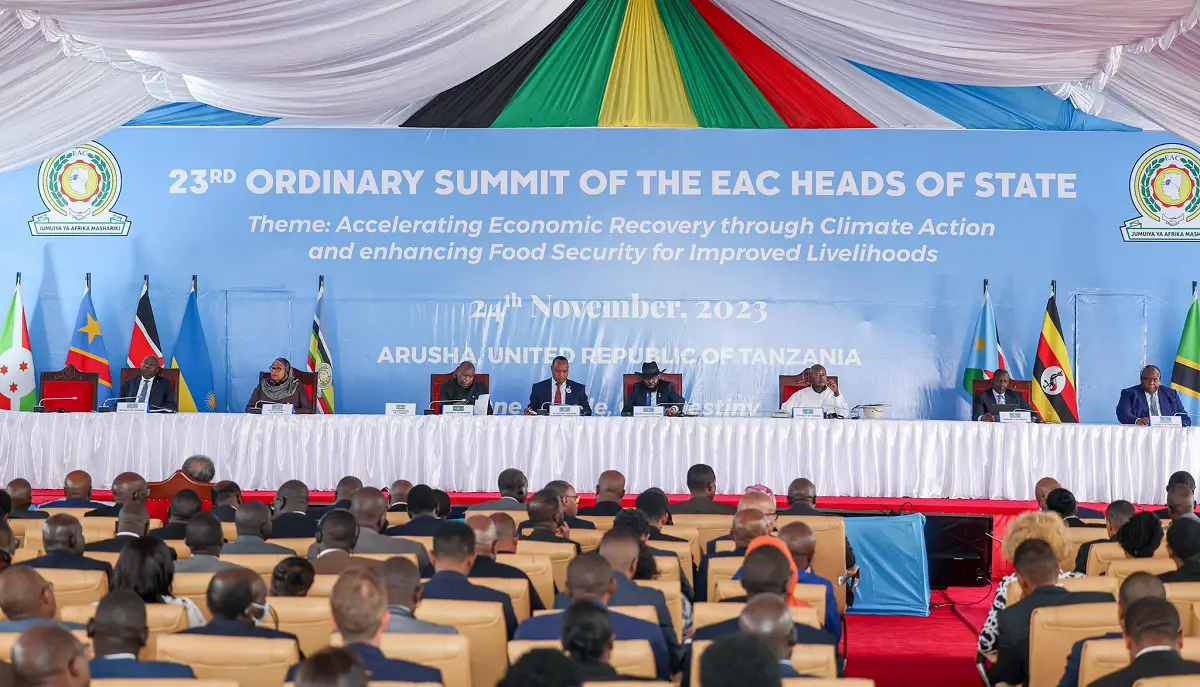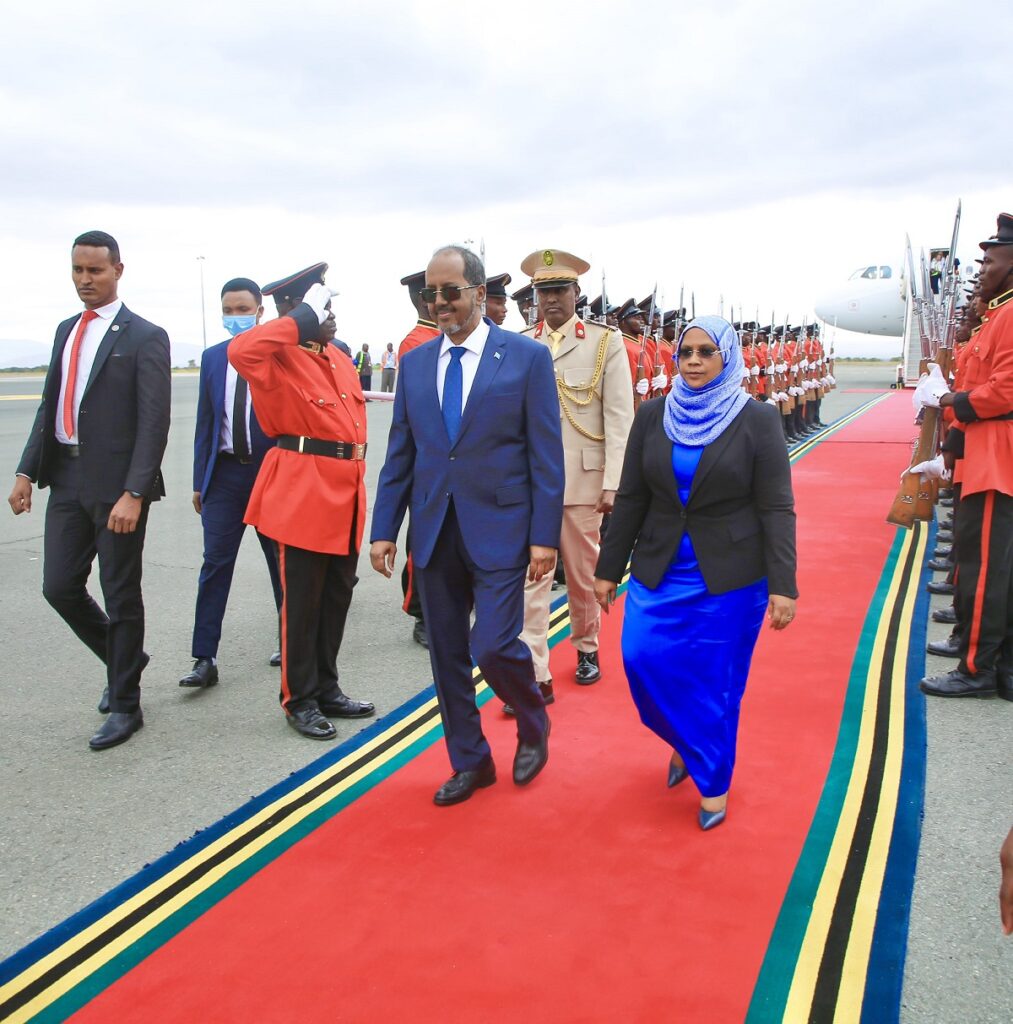- As the eighth member of the EAC, Somalia opens a new chapter in East Africa’s collaborative growth story.
- This move is aimed at reviving Somalia’s economy ravaged by years of conflict, promises mutual benefits for both Mogadishu and the EAC members.
- Somalia’s extensive coastline, spanning over 3,000km, is a gateway to offshore resources like oil and gas.
The recent admission of Somalia into the East African Community (EAC) marks a significant milestone in the region’s economic landscape. As the eighth member of the EAC, joining Burundi, the Democratic Republic of Congo, Kenya, Rwanda, South Sudan, Tanzania, and Uganda, Somalia opens a new chapter in East Africa’s collaborative growth story.
Somalia’s entry into the EAC, a region with nearly 300 million people and a unified market since 2010, is not just a mere expansion of the bloc but a strategic addition with far-reaching implications. This move, aimed at reviving Somalia’s economy ravaged by years of conflict, promises mutual benefits for both Somalia and the EAC members.
With Somalia’s entrance into EAC enlarges its market size
One of the most notable impacts is the market expansion. With Somalia’s inclusion, the EAC enlarges its market size, presenting fresh avenues for trade and investment. This expansion is not limited to the number of consumers but extends to the variety of resources and opportunities each member brings to the table.
Another significant advantage is the coastline access. Somalia’s extensive coastline, spanning over 3,000 km, is a gateway to offshore resources like oil and gas. This geographical asset is a boon for the EAC, which can leverage this access for maritime trade and resource exploration, enhancing the bloc’s global economic footprint.
Investment opportunities are also set to rise. The EAC’s large population, established customs union, and common market create an attractive landscape for investors. Somalia, now part of this integrated market, stands to benefit from increased foreign investment, a boost to its infrastructure development, and a stronger presence in regional trade.
However, this integration comes with its share of challenges. Security concerns are paramount, given Somalia’s long-standing battle with al-Qaeda-linked al Shabaab insurgents. The fear that EAC integration could inadvertently facilitate the movement of militants and contraband across borders is a critical issue that needs addressing.
Moreover, governance and corruption remain significant hurdles. Somalia’s ranking as the most corrupt country by Transparency International raises questions about its adherence to the EAC’s principles of good governance, democracy, rule of law, human rights, and social justice. Tackling these issues is essential for harmonious cooperation within the EAC.
Despite these concerns, the economic benefits of Somalia’s EAC membership are anticipated to be substantial, contingent upon addressing security and governance issues. The EAC’s support in these areas could prove instrumental in stabilizing Somalia, thereby enhancing regional stability and prosperity.

Read also: EAC to approach COP28 Climate Summit as one bloc
Opportunities and Challenges: Trade, Sanctions, and Doing Business with Somalia
The EAC’s collective approach to security could offer strategic benefits to Somalia, potentially aiding in the stabilization of the country. However, there are valid concerns that this integration might inadvertently facilitate the movement of militants and contraband across borders, potentially exacerbating security issues within the region. In addition, Somalia’s ranking as the most corrupt country in the world by Transparency International raises critical questions about its governance and adherence to the rule of law.
On the international front, Somalia has been subject to sanctions by both United Nations and the United States. The US sanctions, encompassing various legal authorities including executive orders and public laws, address the national emergency concerning Somalia’s conflict and security situation. Similarly, the UN Security Council has imposed an arms embargo on Somalia, alongside measures to enforce it, such as maritime interdiction to prevent illicit arms and contraband trade.
These sanctions, primarily targeting arms, charcoal exports, and components for improvised explosive devices, reflect concerted international efforts to manage the security challenges in Somalia. The UN Security Council has extended these sanctions, including the arms embargo, until November 15, 2023, emphasizing the ongoing concern about Somalia’s security situation.
Somalia’s integration into the EAC raises crucial questions regarding trade engagements under the shadow of these sanctions. While the EAC offers a platform for increased trade and economic collaboration, member countries must navigate the complexities of doing business with Somalia in compliance with international sanctions.
This means ensuring that any trade with Somalia does not contravene the sanctions, especially concerning arms and specific commodities. Adherence to these sanctions is critical, as any violation could lead to legal repercussions and undermine international law.
Opportunities for expanded trade
Somalia’s entrance into the EAC is a development of great promise, marked by opportunities for expanded trade, investment, and regional integration. While member countries face the dual task of leveraging economic opportunities they must uphold their obligations under international sanctions.
The EAC’s role in supporting Somalia through these challenges could be pivotal in achieving a balance between economic growth and security considerations in the region. The road ahead requires collaborative effort to overcome challenges, but the potential for transformative economic growth in East Africa is undeniable. As the EAC and Somalia embark on this journey, the focus should remain on leveraging strengths, addressing weaknesses, and fostering an environment conducive to shared prosperity.











